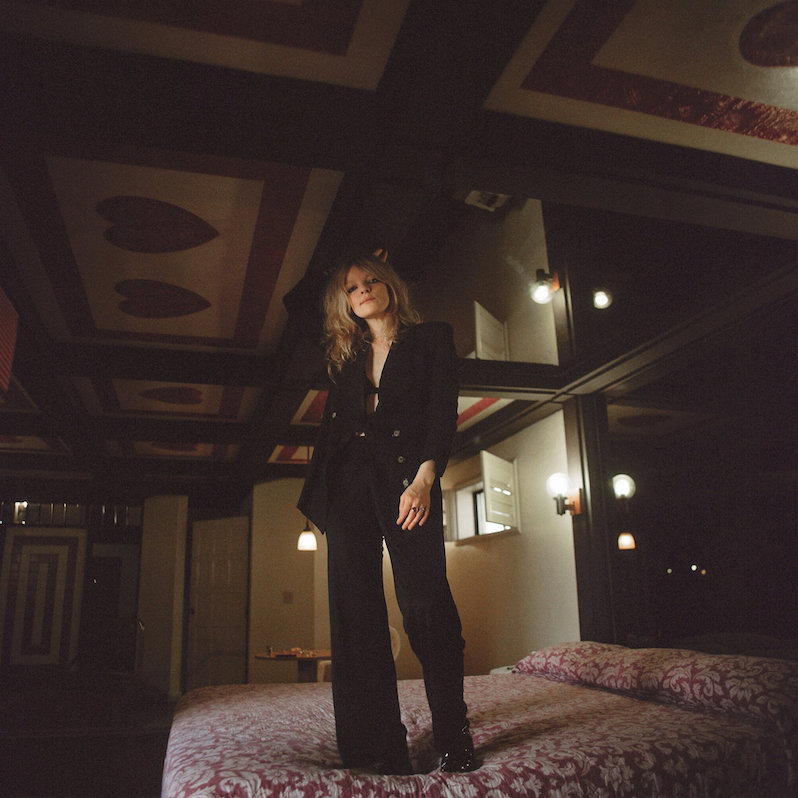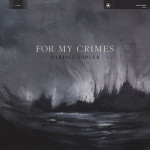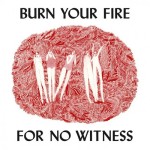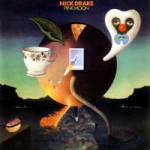Jessica Pratt : Quiet Signs

All of the clichés about folk music apply to Jessica Pratt. It’s gentle music meant to be heard on rainy days. It’s quiet and introspective. And it always feels cozily, comfortably intimate, as if Pratt had invited you into her own living room for a first-person performance. On her 2015 album On Your Own Love Again, the handful of moments of expansive, psychedelic experimentation only served to reinforce the closeness of her music. The faint whir of an organ in “I’ve Got A Feeling,” the tempo-slowing tape melt effect in “Jacquelyn in the Background”—it’s easy to picture Pratt clicking buttons on her four-track machine between sips of green tea. And somehow, despite the straightforward nature of it all, her voice and her melodic sensibility harbor a mystique beyond the simplicity of her home-studio setup. Psychedelia need not be born of effects pedals.
Quiet Signs, Pratt’s wintry third album and first with Mexican Summer, is no less intimate than her previous two. Yet where on past records Pratt stuck to a home-recorded D.I.Y. approach, this is her first album to be recorded in a professional studio. So while the stripped-down approach of mostly voice and guitar hasn’t changed much, the room has gotten considerably bigger, Pratt essentially inviting us into what feels like a private session that all of a sudden has a wealth of space. Pratt uses that to her advantage, taking the opportunity to add in the occasional piano, flute or keyboard—even a second guitar here or there—fleshing out her arrangements just slightly, even with the luxuries of higher fidelity at her disposal.
Pratt’s made magic from the starkest of elements before, so it’s not as if she needs to add much as it is. Even the instrumental intro, “Opening Night,” is stunning as it is, a simple arrangement of minor-key piano chords that feels almost cinematic in its haunting starkness. That’s partially intentional, the inspiration behind the track being Gena Rowlands’ performance in Cassavetes’ Opening Night, though it sets a darker mood for this set of songs that feel that much more dramatic with just the slightest change. “As the World Turns” is a prime example of Pratt’s command of restraint, a simple strum pattern becoming almost like a drone as she laments, “More than just an outline born of fear/I won’t find solace here.” There’s a restlessness to Pratt’s words that seems to contradict the stillness of her melodies, but she just as often turns the bitter into sweetness as on “Here My Love,” where an ambient blues harmony between guitar and piano backs a fond remembrance of a loved one: “He’s sincerely worn this heart of mine/He’s not gone, he’s in my mind.”
The most exaggerated change in approach for Pratt comes with the stunning closing track “Aeroplane,” not merely because it’s played with an electric guitar or because it also features percussion—neither of which is a staple in her music by any means—but likewise because it features a three-chord chorus that feels more Velvet Underground than Nick Drake. She portrays a scene in which she’s miles above the earth, and though there’s still a candlelit, wee-hours sensibility to the song, the feeling is pure magic: “I don’t wanna touch down/Treasures luminous and divine/Savior’s light, oh.” Subtle as it might be, it’s evidence of the space Pratt’s given herself to stretch and build on a strong but sparse songwriting core. Her music is still intimate, still evokes rain-streaked windows and a comforting, cozy gloom, but now feels even more at home when reverberating through vastly bigger spaces.
Similar Albums:
 Marissa Nadler – For My Crimes
Marissa Nadler – For My Crimes
 Angel Olsen – Burn Your Fire For No Witness
Angel Olsen – Burn Your Fire For No Witness
 Nick Drake – Pink Moon
Nick Drake – Pink Moon
Jeff Terich is the founder and editor of Treble. He's been writing about music for 20 years and has been published at American Songwriter, Bandcamp Daily, Reverb, Spin, Stereogum, uDiscoverMusic, VinylMePlease and some others that he's forgetting right now. He's still not tired of it.

